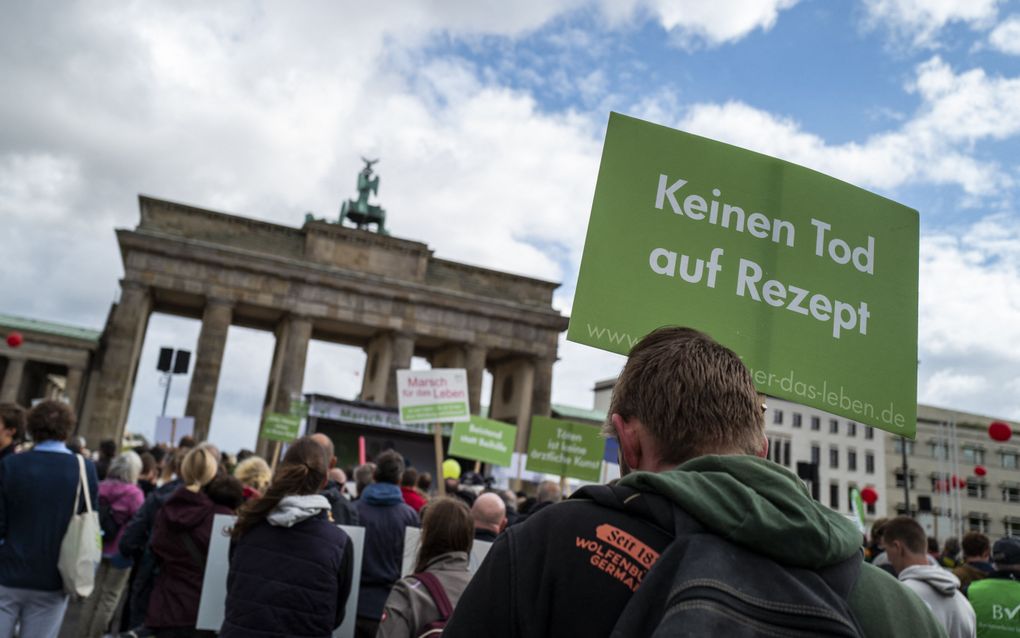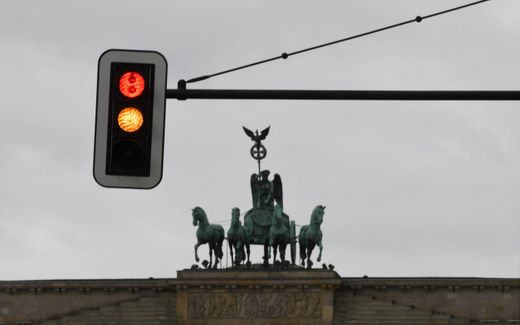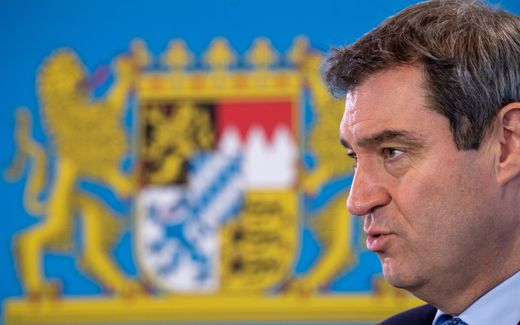Scholz government liberalises on ethical policies

Photo AFP, John MacDougall
Central Europe
The Christian Democrats are not part of the Scholz government. This is particularly noticeable in ethical issues. Removal of abortion from the penal code seems a matter of time.
The German Bundestag abolished abortion section 219a in June this year. According to that paragraph, doctors cannot provide information about abortion on their websites. For this reason, the paragraph was known in Germany as the Werbeverbot, an advertising ban. This was not about advertising on radio or television but about information about abortion on a GP's website.
The Social Democrats (SPD), Liberals (FDP), and Greens had included the deletion of this paragraph in their election manifestos. After the government coalition took office, the section disappeared quickly from the penal code.
But that is not the last word that is said on abortion. Paragraph 219a follows paragraph 218. And that states that abortion is punishable. This follows a 1993 ruling by the Constitutional Court in Karlsruhe. The court noted that the protection of human life should be emphasised. To underline the value of human life, abortion was criminalised and included in the penal code.
Abortion is allowed if a woman is not pregnant for more than three months. If so, she must make an appointment with a counselling centre three days before the procedure. Here, information is given on the pros and cons of abortion. Officially, the (government) centres must advocate for life. In practice, they do not go against the woman's wishes.
Abortion is also allowed under certain medical circumstances and after rape.
After the deletion of paragraph 219a, there are calls to delete paragraph 218, especially within the governing parties SPD and Greens. Ideally, these parties would have liked to include this point in the coalition treaty as well, but the FDP managed to prevent this.
Justice Minister Marco Buschmann (FDP) called paragraph 219a an anachronism, a regulation out of place in this day and age. On the other hand, he said in February, "Whoever wants to delete section 218 must present an appropriate solution for the protection of unborn life, as the Constitutional Court rightly demands."
The final word on paragraph 218 is yet to be said. SPD and Greens, in particular, continue to advocate the deletion of the section from the penal code. In November, an SPD meeting in Hamburg had put the item on the agenda. The proposal to remove abortion from the penal code garnered the most applause.
Euthanasia
Germany's Constitutional Court surprised in 2020 by annulling euthanasia paragraph 217. It did so because the 2015 paragraph violated the personality right of citizens enshrined in the constitution. "This includes the right to decide when to die," explained Andreas Vosskuhle, one of the judges at the Constitutional Court in Karlsruhe. Section 217 made assistance in dying virtually impossible, he argued.

The ruling was made when Christian Democrat Angela Merkel was still Chancellor. Her government did not take up the case, as the judges indicated that a broad public discussion on euthanasia must occur first. No sooner said than done. Churches took a stand, as did doctors and patient associations. A broad discussion also followed in the media so that citizens could form opinions.
There are currently three bills in the Bundestag being discussed. On 24 June, 13 deputies in the Bundestag were given speaking time to explain their positions. There was no opportunity for debate.
The most conservative proposal seems most likely to succeed at the moment. The proposal accepts euthanasia but also focuses on prevention. For example, someone who is depressed can go to a GP and ask for euthanasia. The doctor will then have to clarify that there are other ways out. Not only the Christian Democrats support the proposal, but also delegates from the Social Democratic SPD and the Greens.
During the 24 June session, it was agreed that the Bundestag would take a decision on euthanasia this autumn. This has yet to happen. If the new law is submitted to the Bundestag members, there will be no group pressure.
Family
The German coalition government has developed a plan whereby a child can have more "parents" besides his father and mother. In this case, Germans speak of a "Verantwortungsgemeinschaft". This is best described as a jointly responsible community.
The government plan, incidentally, is an old proposal by the liberal FDP. The latter launched the idea in January 2020, when the party was still in opposition.
A Verantwortungsgemeinschaft is created by two, three or four adults agreeing. "The family is diverse and is wherever people are responsible for each other," the coalition agreement states. The rainbow family, the Scholz government wants, should be more firmly established in family policy.
The idea of a community raises numerous questions that the coalition still needs to resolve. In Germany, a married couple has tax benefits. How does that work with such a community? Do all three or four parents then get that benefit? How is a divorce settled if one partner leaves the group?
It seems that the Verantwortungsgemeinschaft raises so many questions that it remains a plan for now. The Christian Democrats will not shed a tear over that. One of the criticisms of the Bavarian CSU is that the plan paves the way for polygamy. Deputy president Dorothee Bär told the daily Die Welt: "How do you stop a man if he wants to be with three women? The idea of the traffic light coalition is incompatible with our culture, and I am sure the women, in particular, will suffer."
This article was translated by CNE.news and previously published in Dutch daily Reformatorisch Dagblad on November 18th, 2022.
Related Articles






